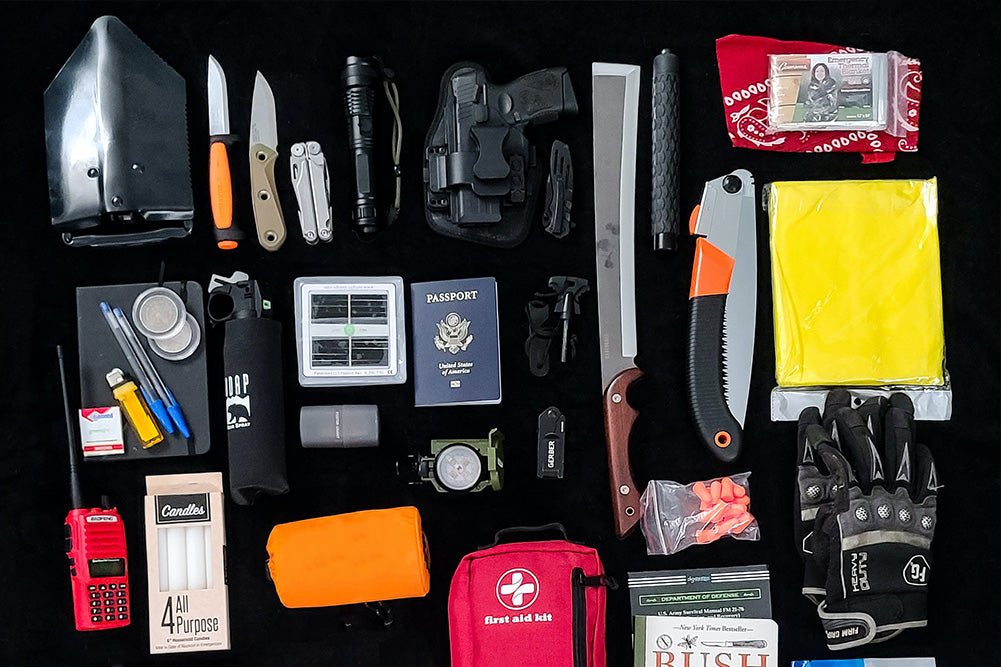Your Cart is Empty
September 30, 2022 4 min read

There are a few kinds of nuclear events that are worth preparing for in the United States. About 20% of power in America comes from nuclear power plants in various states countrywide. While these plants produce valuable electricity, they may release harmful radioactive elements into the environment that later slips into underground water, contaminating clean water for general use.
In the event of a nuclear power plant accident, the level of radiation worsens, increasing the risk of cancer, cardiovascular diseases, congenital disabilities, and other severe health conditions.
There is also the risk of nuclear weaponry being deployed during global conflict.
So how do you keep yourself and your loved ones safe in a nuclear emergency? This post explains what professional emergency preppers are doing to protect themselves and their families in 2022.
Nuclear emergencies are classified into four levels according to their increasing significance. These include unusual events, alerts, site area emergencies, and general emergencies. In general emergencies, radiation levels can harm human health. Here are some protective measures you can take:
The secret to surviving any emergency is staying self-sufficient before the responsible institutions can solve the issue. This might take several days to weeks, especially if the radiation is widespread.
A survival kit ensures you and your loved ones have the necessary supplies to turn a dire situation into a survivable one. Here are the essential items to have in the case of a nuclear power plant accident leads to water contamination:
Following a nuclear disaster, safe drinking water from regular water faucets may not be readily available due to serious contamination. This doesn't mean you should deviate from the recommended four liters per person per day.
Instead, build a water supply that will meet you and your loved ones' drinking and sanitation needs during the entire period. There are two ways to do that. These include:
When looking for safe, clean drinking water during a radioactive accident, keep in mind that:
After a nuclear accident, a lack of clean water to cook with, coupled with power outages, may mean food will not be readily available. As such, it's essential to stock up on various foods that may do without refrigeration or special cooking needs. That may include:
Make sure to include a can opener, select foods your loved ones will eat, and factor in any special dietary needs when putting together food supplies.
A first aid kit is essential for any crisis, especially in radiological contamination. First aid kits can help treat minor wounds and ailments, saving you or loved ones a trip to the hospital, which may already be busy due to the nuclear accident. Ensure your first aid kit has a first aid manual, adhesive bandages, medical tape, gloves, a CPR mask, and an assortment of gauze pads. You could also include various prescription medications, such as ibuprofen, that may come in handy.
Other minor but essential items that should also feature in your emergency disaster kit are:
Before nuclear radiation particles slip underground and contaminate water, the radioactive particles must have already contaminated the air. Therefore, if a nuclear accident occurs, seek shelter immediately inside a secure building with solid walls (cars aren't secured; particles can still penetrate).
Once inside, close all doors and windows and stay far from the walls and roof, where radioactive materials initially settle. If you've been in contact with the radiation, remove the outer layer of your clothing that may be contaminated.
Nuclear tensions are increasing in almost every part of the globe, including the United States. Today, the presence of radiological contaminants in water has already become the norm, and it may become an even more pressing problem. Having the right supplies, especially clean and safe water, is essential.
Seychelle radiological filters provide the most value at such a time as they ensure you can drink, cook and clean using uncontaminated water. The Seychelle Radiological Bundle is carefully vetted and tested to filter out radiological contaminants, allowing long-term access to clean water.
Having clean water is key to ensuring almost all parts of your family’s life, like cooking and cleaning, continue with minimal disruption. Seychelles water filters ensure you have clean, safe water throughout the event.
If you live near one of the 56 commercial plants around the country, you're at higher risk of water contamination, whether a nuclear plant accident or nuclear attack occurs or not.
The health risks of drinking water that contains harmful radioactive materials (radionuclide) like uranium, radon, and radium include internal organ damage, cancer, and congenital disabilities, to name a few.
https://www.nrc.gov/about-nrc/emerg-preparedness/about-emerg-preparedness/emerg-classification.html
https://www.cbsnews.com/news/uranium-contaminates-drinking-water-in-us-west/